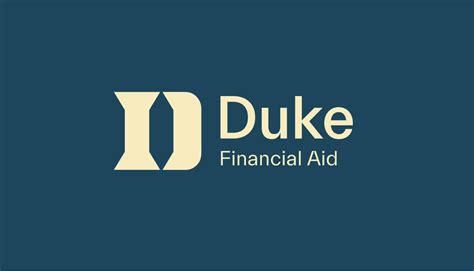Introduction
Duke University’s Financial Aid Office is dedicated to assisting students in pursuing their higher education aspirations by providing comprehensive financial aid programs. With a steadfast commitment to affordability, the office strives to ensure that the financial burden of attending Duke does not deter qualified students from accessing its renowned academic opportunities. This article delves into the financial aid resources available at Duke, including scholarships, grants, loans, and work-study programs, empowering students with the knowledge and guidance they need to navigate the financial landscape of higher education.

Scholarships and Grants
Duke offers a wide range of merit-based scholarships to recognize outstanding academic achievement and leadership qualities. These scholarships include:
- The Duke Robertson Scholars Program: This prestigious program awards full scholarships to exceptional students who demonstrate intellectual curiosity, academic excellence, and a commitment to service.
- The Duke University Scholars Program: This highly competitive program provides significant financial assistance to students with exceptional academic credentials and extracurricular involvement.
- The Pratt School of Engineering Scholars Program: This program offers scholarships to talented engineering students based on their academic merit and potential for success in the field.
In addition to scholarships, Duke also awards need-based grants to students who demonstrate financial need. These grants include:
- The Federal Pell Grant: This federal grant is awarded to undergraduate students from low-income families who have not yet earned a bachelor’s degree.
- The Federal Supplemental Educational Opportunity Grant (FSEOG): This federal grant is awarded to undergraduate students who demonstrate exceptional financial need.
- The University Grant: This Duke-funded grant is awarded to students with financial need who are not eligible for federal grants.
Loans
Loans are a common form of financial aid that allow students to borrow money to cover the cost of education. Duke offers a variety of federal and private loans, including:
- Federal Direct Subsidized Loans: These loans are awarded to undergraduate students with financial need and do not accrue interest while the student is enrolled at least half-time.
- Federal Direct Unsubsidized Loans: These loans are awarded to undergraduate and graduate students and accrue interest regardless of enrollment status.
- Private Loans: Private loans are offered by banks and other lenders and typically have higher interest rates than federal loans.
Work-Study
The Federal Work-Study Program allows students to earn money to help pay for educational expenses. Students who participate in the program are employed by Duke University or an off-campus organization and receive a paycheck for their work.
Financial Aid Application Process
To apply for financial aid at Duke, students must complete the Free Application for Federal Student Aid (FAFSA) each year. The FAFSA is a standardized form that collects information about the student’s and family’s financial situation to determine eligibility for federal and institutional aid.
Common Mistakes to Avoid
When applying for financial aid, students should take the following steps to avoid common mistakes:
- Filing the FAFSA on time: The priority filing deadline for the FAFSA is February 15th each year. Late submissions may result in delayed processing and missed deadlines.
- Providing accurate information: All information provided on the FAFSA must be accurate and complete. Submitting false or misleading information can result in the denial of aid.
- Failing to meet deadlines: Financial aid deadlines are strictly enforced. Students must submit all required documentation by the specified deadline to avoid delays in receiving aid.
- Not exploring all available options: Students should not limit themselves to one type of financial aid. Explore a combination of scholarships, grants, loans, and work-study programs to maximize funding.
- Borrowing more than necessary: Students should only borrow as much money as they need to cover educational expenses. Excessive borrowing can lead to financial hardship in the future.
Tips and Tricks for Success
To increase your chances of receiving financial aid, consider the following tips:
- Start the application process early: The earlier you file the FAFSA, the higher your chances are of receiving aid.
- Contact the Financial Aid Office: If you have questions or concerns about the financial aid application process, contact the Financial Aid Office for assistance.
- Seek out scholarships and grants: Explore a variety of scholarship and grant opportunities both inside and outside of Duke University.
- Consider work-study: Participating in the Federal Work-Study Program can help you earn money while gaining valuable work experience.
- Manage your finances wisely: Create a budget and track your expenses to ensure that you are using your financial aid funds responsibly.
Conclusion
Duke University’s Financial Aid Office is an indispensable resource for students seeking to finance their higher education journey. By providing a comprehensive suite of financial aid programs, the office empowers students to overcome financial barriers and achieve their academic goals. By understanding the available resources, navigating the application process carefully, and avoiding common mistakes, students can maximize their financial aid package and pave the way for a successful and fulfilling educational experience at Duke University.
